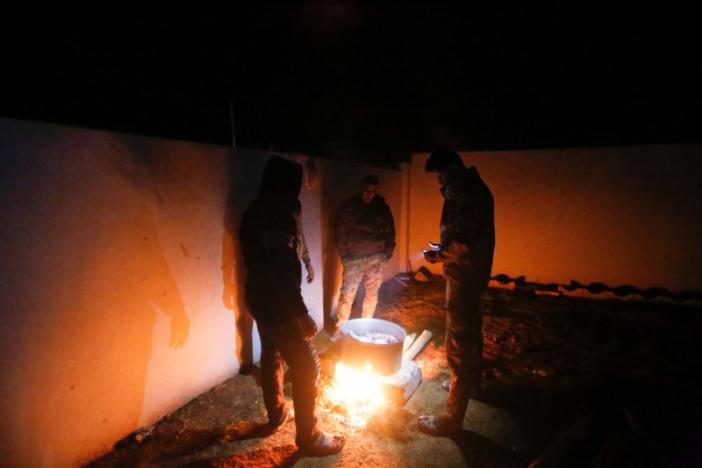Erbil- Iraqi forces battling to retake ISIS’ last major stronghold – Mosul – have entered a planned operational refit, a top U.S. general in the international coalition backing Baghdad said, the first significant pause of the campaign.
Elite soldiers have retaken a quarter of the northern city, but their advance has been slow and punishing. Several thousand Iraqi federal police were redeployed from the southern outskirts last week to reinforce the eastern front.
They are part of a 100,000-strong alliance which launched a campaign on Oct. 17 that has become the biggest in Iraq since the 2003 U.S.-led invasion that toppled Saddam Hussein.
“This is an operational refit. This sets the conditions for continued progress by ISF (Iraqi security forces) and their plan and their operation to liberate Mosul,” U.S. Air Force Brigadier General Matthew Isler, deputy commander for the coalition’s air forces told Reuters by phone from Baghdad on Wednesday.
The refit follows 65 days of “going at this at an operationally high tempo the entire time”, he said, and includes repairing vehicles, resupplying ammunition and preparing forces for the next stage.
“There is a lot of activity going on. You would see a busy beehive … of them in their operational refit,” he said. “They are going to resume soon and the ISF are driving that timeline.”
Forces from Iraq’s counter-terrorism service (CTS), which has spearheaded most major battles against ISIS since the army and police dropped their weapons and fled in 2014, are still making advances in Mosul but at a much slower pace than at any other time in the battle.
While the Iraqi government does not provide casualty figures for its military, concerns are growing about the toll of CTS deaths. Isler said the refit was vital to long-term success.
“What really matters in a campaign is progress over time. Every day is different and has those unique challenges. It also means that in each of those days and challenges you have to sustain your forces,” he said.
CTS has made some small advances in eastern Mosul recently, but usually rosy reports from the military’s war media cell this week have said only: “No changes on all axes”.
Iraqi authorities have increasingly restricted the foreign news media’s access to the battle fronts and areas retaken from ISIS in and around Mosul, making it difficult to confirm their accounts.
“I don’t think anyone can deny momentum is with Iraq. The ISIS defeat is inevitable. Even Daesh knows it, they are not playing to win and they are just trying to buy time,” said Isler, using an acronym for ISIS.
His comments came as CTS Staff Lieutenant General Abdelghani al-Assadi denied that the operations have come to a halt.
“There is neither a partial nor a full halt to the operations,” Al-Assadi told DPA. “The battles are ongoing and there is an advance on all battlefronts based on the plan put by the general command.”
“We have made big achievements. The CTS was able to liberate 40 out of the 56 neighborhoods of the city’s eastern sector,” he added.
But according to the AFP, while Iraqi have advanced into Mosul’s east, large parts remain under jihadist attack.
Mohammed Abdulrazzaq was gathering water in Mosul when shrapnel tore into his legs, making him one of a growing number of wounded from the battleground Iraqi city putting huge strains on hospitals.
Abdulrazzaq said his arms were loaded with jerry cans of water when the shellfire struck with “a huge boom” that left him deaf in one ear.
He then “saw the blood squirt” from his legs.
His legs covered in bandages, Abdulrazzaq is now hospitalized in Erbil.
Saddam Georgis, who was also wounded by shelling in Mosul, lived for two weeks in an area “liberated” from ISIS’ brutal rule.
Like others he welcomed the arrival of Iraqi forces in the city’s Al-Alam district.
But while the jihadists had been pushed out of the area, it was still within range of their mortar rounds.
Georgis remembers the sound of the explosion and the shock of the shrapnel — “like a stone that hit me in the thigh” — the spurting blood, being transported on a makeshift cart.
After that, he recalls nothing until he woke up in hospital.
“I don’t even know if my four children were able to reach relatives in Mosul,” he said, his wife sitting at his bedside.
